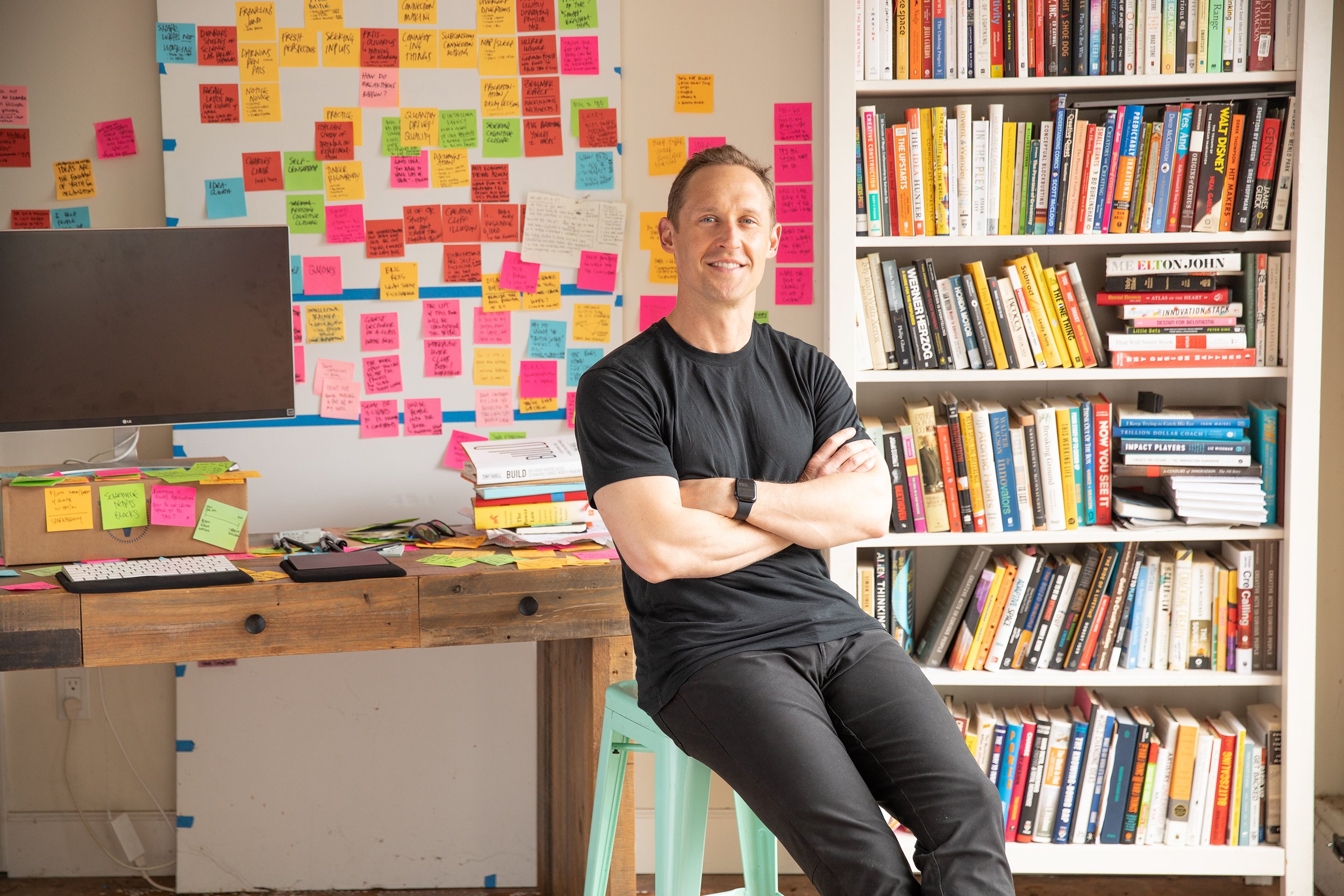
Methods of the Masters
A blog on the art & science of creative action.
Unleash Your Inner Kindergartener
Puzzled by underwhelming results despite your expertise? Discover the surprising insights from a groundbreaking study that can help you tackle challenges and achieve better outcomes.
Declare an AI Recess
One critical reason folks in organizations aren’t imagining radical new applications of GenAI is, their imaginations aren’t stimulated. My recommendation might fly in the face of convention, but it’s been demonstrated highly effective in both this AI-moment and in times past.
If AI Hasn't Made You Giggle, You're Not Pushing Hard Enough
For all the existential angst spilled regarding AI on the news, there's one danger I haven't heard get much attention. It's not the threat of sentient machines or the loss of jobs—it's the risk of AI disappointing us, not because of its limitations, but because of our own.
Mind the (Generational) Gap: Bridge the AI Divide with Your Expertise
Are you an experienced professional watching the AI revolution from the sidelines? It's time to get in the game! Discover why your hard-won expertise is the secret weapon to unlocking AI's full potential and turbocharging your career.
Augment Your Intelligence: Embrace AI to Enhance Decision-Making
Generative AI represents enormous potential for innovation. But even well-intentioned leaders can undermine their own efforts to explore. If they aren’t careful, they can end up reinforcing counter-productive biases amongst the very teams they’re trying to unleash.
The Problem With Human x AI Collab: It’s Not the AI
If you’re getting mediocre–or even bad–results from AI tools like ChatGPT, it’s not because the tech is bad. Research suggests that you’re probably settling for mediocrity.
Forget About “New Ideas”
Two words most commonly associated with ideas are “good,” and “new.” I’ve often encouraged folks to forget “good.” Here’s the case for forgetting, “new,” too.
Can AI make brainstorming less mind-numbing?
Financial Times Opinion Piece featuring our AI research:
”Generative tech is improving work — but employees need to be as smart as their new assistants”
Turn Off Critical Thinking
Dr Charles Limb, a Johns Hopkins neuroscientist obsessed with improvisational jazz, conducted a fascinating study on creative flow. It has profound implications for what we practice, and what we value, in our individual lives and organizations.
Embrace the Outsider
It’s a well-known fact that Albert Einstein shattered the paradigm of physics as an “unqualified” outsider. Some might suggest his lack of status was actually a benefit.
Seek Surprises
Imagination is sparked by unexpected information. If you want to stimulate fresh thinking, seek out surprises. Here’s the inside scoop on the origins of an innovation at Mattel, which highlights the importance of welcoming an unexpected direction.
Court Serendipity
Steve Jobs said, “Theres a temptation in our networked age to think that ideas can be developed by email and iChat. That's crazy. Creativity comes from spontaneous meetings, from random discussions.”
Have Lots of Bad Ideas
Taylor Swift illuminates one of the most counterintuitive findings in all the creativity literature: the best way to have a good idea is to allow yourself to have lots of bad ideas. Seth Godin agrees.
Be Sparkable
One of the greatest compliments you can pay a collaborator at the d.school is to say they’re “sparkable.” What exactly does that mean? They’ve learned to have a particular effect on creative combustion.
Recognize When You’re Stuck
Most breakthroughs sneak up on us, and can easily recede from our memories. Seeing when we’re stuck is an important step in rewiring some of our default ways of working.
Squint At New Ideas
What can leaders do to promote creativity and innovation in their organizations? According to bestselling author and innovation guru Tom Kelley, when they’re shown new ideas, they should squint.
Say, “I Don’t Know”
“I don’t know,” might be three of the hardest words to say, especially for a professor. A leader is often conceived as the one who knows. And yet, not knowing creates space for the unexpected to emerge…
Discern the Need for Input
One of the great secrets to effective creativity is, when you're finding creative output hard to come by, shift your attention to your inputs. The outputs of our thinking are largely a function of the inputs we seek.
Look for Leverage
Leverage is one of the most fundamental mechanisms of value creation, yet folks look far enough beyond the balance sheet to reap its full rewards. Here’s how to bring leverage into daily life.



















